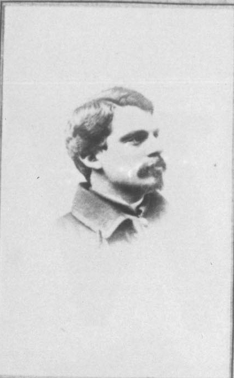Joseph C. Jackson facts for kids
Quick facts for kids
Joseph Cooke Jackson
|
|
|---|---|
 |
|
| Born | August 5, 1835 Newark, New Jersey, U.S. |
| Died | May 22, 1913 (aged 77) New York City, U.S. |
| Buried |
Cedar Hill Cemetery, Hartford, Connecticut, U.S.
|
| Allegiance | |
| Branch | |
| Rank | |
| Unit | 1st New Jersey Infantry Regiment |
| Commands held | 26th New Jersey Infantry Regiment |
| Battles/wars | American Civil War |
| Alma mater | Yale University |
| Spouse(s) |
Katharine Perkins Day
(m. 1864–1913) |
| Children | 4 |
Joseph Cooke Jackson (born August 5, 1835 – died May 22, 1913) was an American soldier and lawyer. He served as a Brevet Brigadier General during the American Civil War. He led the 26th New Jersey Infantry Regiment and fought in many battles.
After the war, Jackson became a well-known lawyer. He even served as an assistant United States District Attorney in New York. He was known for helping his home state save a lot of money during the war.
Contents
Early Life and Education
Joseph Jackson was born in Newark, New Jersey, on August 5, 1835. He was one of several children. His family had a long history, including connections to the Huntington family.
He went to school at the Newark Academy and Phillips Academy. Later, he attended Yale University, where he earned many honors. He also studied at New York University and Harvard University. In 1860, Jackson became a member of the New York State Bar Association. This meant he could start his career as a lawyer.
Serving in the American Civil War
When the American Civil War began, Joseph Jackson quickly joined the Union Army. He volunteered to be an aide, or helper, for Brigadier General Robert Anderson.
On October 11, 1861, Jackson became a Second Lieutenant in the 1st New Jersey Infantry Regiment. He then became an aide to Philip Kearny, a famous general. Jackson was even offered a chance to lead the 61st New York Infantry Regiment as a full Colonel, but he chose to stay with Kearny.
After General Kearny was killed, Jackson joined General William B. Franklin's team. In August 1862, he was promoted to Captain. He fought in many important battles, including the Seven Days Battles, the Siege of Yorktown, the Second Battle of Bull Run, the Battle of Antietam, and the Battle of Fredericksburg.
Saving Money for New Jersey
In December 1862, Jackson was promoted to Lieutenant Colonel. He was then given a very important job: United States Commissioner of Naval Credits. In this role, Jackson helped New Jersey avoid a military draft. He found almost 2,000 people to join the navy. This saved the state about $1,000,000 in payments that would have been needed for a draft. Governor Joel Parker praised Jackson for this effort.
In 1864, Jackson married Katharine Perkins Day. They had four children together. On March 13, 1865, Jackson was promoted to full Colonel. He also received the honorary rank of Brevet Brigadier General for his "faithful and meritorious services" during the war.
Life as a Lawyer
After the war, Jackson continued his law career in New York City. He was allowed to argue cases in the highest court, the Supreme Court of the United States. He worked in both New York and New Jersey courts.
In 1870, Jackson became an assistant District Attorney for the Southern District of New York. This meant he helped the government with legal cases in that area. He also worked as a lawyer for many railroad companies and banks.
Jackson was an active member of the Republican Party in New York and New Jersey. He often wrote for newspapers and was involved in local politics. He also served as a director for the New York City Mission and was a vice president of the Yale Alumni Association in New York City.

